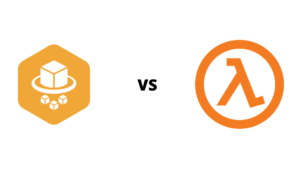Posts by Nick
AWS Lambda vs. Fargate Containers | IronWorker
Docker container technology is open source, which means it’s possible to deploy your containers on a range of platforms. Both AWS Fargate and Lambda support Docker images, albeit in slightly different ways. So, how do you know which one to use?
Read MoreGoogle Cloud Run vs. Azure Container Instances
Deploying your container images on a serverless platform means less resource management and maintenance for you or your business. But which platform is the best? We explore Google Cloud Run and Microsoft Azure Container Instances (ACI) and discuss which cloud providers perform well with Docker images and which is the best value. Achieve Higher productivity…
Read MoreContainers vs. Serverless Computing
The five key differences between containerization and serverless computing: Cost — You must pay for serverless environments hosted in the cloud, whereas a container can be set up for free. However, containers have ongoing management costs, which can be expensive — even if no one is using the application. Longevity – Serverless functions live short, which also provide agility and flexibility. Containers…
Read More

